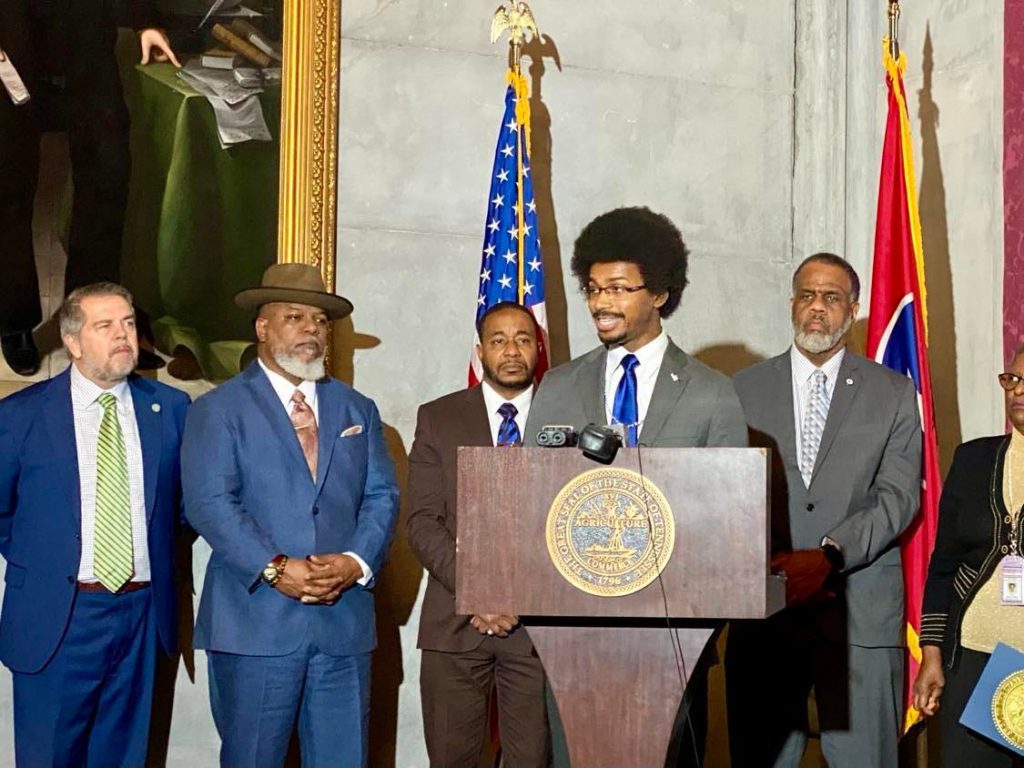A bill that could ensure that people with strong dislike for LGBTQ+ people can care for and legally take children under their wing was approved by the Tennessee House of Representatives on Monday, after being approved by the state senate last month. The bill will now be reviewed by Gov. Bill Lee (R).
Introduced in both the Tennessee House and Senate in January, the “Tennessee Foster and Adoptive Parent Protection Act” would stop the state’s Department of Children’s Services (DCS) from refusing potential adoptive or foster parents’ “ability to foster or adopt based, in whole or in part, on the parent’s sincerely held religious or moral beliefs concerning sexual orientation or gender identity.”
The bill’s Republican supporters argue that it is necessary to increase the number of potential foster and adoptive families in the state. However, opponents caution that it could lead to LGBTQ+ youth, who make up a larger proportion of the U.S. foster care system, being placed in homes that do not accept their sexual or gender identities and with foster parents who may even subject them to conversion therapy.
Research has indicated that many LGBTQ+ young people end up in the foster care system specifically because they have already faced rejection or mistreatment from their family of origin due to their sexual orientation or gender expression. Allocating them to foster families with religious or moral objections to their identity would result in additional trauma, according to the bill’s opponents.
The bill “does not prevent the department from taking into account the religious or moral beliefs” of the child or their family of origin when deciding on placement. However, as Tennessee Lookout noted, the bill’s wording does not necessarily compel require the DCS to do so.
“This legislation isn’t concerned, in a very meaningful way, about the children,” state Rep. Justin Pearson (D) remarked during the debate on Monday. “In fact, with each answer, you told me about the parents not being discriminated against, but we have to be concerned about the children and prioritizing the children in our care who are LGBTQI.”
State Rep. Justin Jones (D) labeled the bill as unethical. “Discrimination disguised as religion is still discrimination. Hate disguised as religion is still hate,” Jones said Monday. “You mentioned that you want these kids to be sent into a home where they can be loved, where they can flourish. Can you clarify the reasoning behind a child being placed into a home where they are told they are wrong, that their identity is wrong, that they don’t belong, that they made a mistake with who they are? How can they thrive in such an environment?”
“This legislature has done everything that it can to bully LGBTQ+ children, and it is wrong,” Jones added. “This legislature should be ashamed.”
“Placing these children in homes where the fundamental truth of who they are will not be honored is in no one’s best interest,” Cathryn Oakley, senior director of legal policy at the Human Rights Campaign (HRC), said according to The Tennessean. “Not their best interest, not the state’s interest, not the interest of the parents either.”
HRC’s Associate Director Molly Whitehorn urged Tennessee Gov. Bill Lee (R) to reject the bill, along with journalist Erin Reed reports. Whitehorn stated that the bill reverses the main idea of child welfare, which is that every choice should be in favor of the child's best interests.
Both Whitehorn and Oakley pointed out that the bill would permit LGBTQ+ youth to be exposed to the harmful and discredited practice of 'conversion therapy' by foster families.
The Tennessee Equality Project also pointed out that if Lee approves the bill, it could endanger the entire child welfare system in the state. The LGBTQ+ advocacy organization highlighted in a press release that the bill would contradict a new regulation proposed by the U.S. Department of Health and Human Services in September, which requires all state and tribal foster care agencies to place LGBTQ+ children in homes where they will receive support, will be protected from 'conversion therapy,' and will have access to gender-affirming care.
During a Tennessee Senate hearing last month, Oakley cautioned lawmakers that they could lose federal funding if the bill becomes law.









